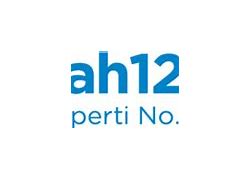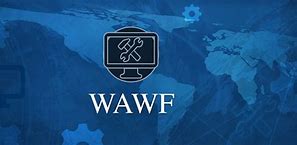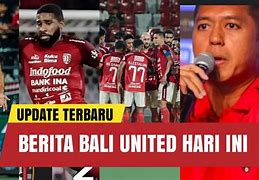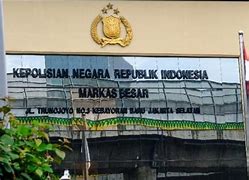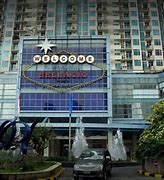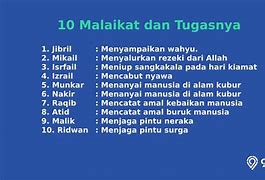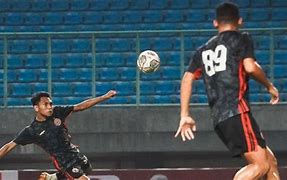
Season-by-season records
Notable former players
This is the list of several domestic and foreign former notable or famous players of Persija from time to time.
Links to related articles
In this match you stick with...
Pada pertandingan ini kamu akan tetap mendukung…
Foundation and early years
Persija has roots that predate the current Indonesian state, which declared independence in 1945. Its forerunner, the Voetbalbond Indonesische Jacatra (VIJ), was formed on 28 November 1928 as a football club for Indonesian residents of Jakarta when the Dutch were still colonizing the country. The name Jacatra refers to a fort on the northern coast of present-day Jakarta. VIJ, along with six other Indonesian clubs, established PSSI on 19 April 1930 and won the first PSSI-authorized competition in 1931. In 1937, VIJ did not enter the competition but after that the club was always in the top division.[7][8]
VIJ changed its name to Persija in 1950, five years after the Indonesian independence. In mid-1951, a club with ethnic Chinese, Dutch and Eurasian players merged with the rebranded outfit. As the Indonesia national football team in the 1950s heavily depended on Persija players, its line-ups at that time were filled by many ethnic Chinese, Dutch and Eurasian players from the Jakarta club.[7]
Semi-professional years (1994–2008)
PSSI tried to combine the popular Perserikatan teams with the professional clubs from the Galatama league, which was struggling to attract a healthy-sized audience as the clubs did not attract primordial sentiments, into a league called Liga Indonesia. Persija, with a weak fanbase, continued its poor streak in the early years of Liga Indonesia until former army general Sutiyoso was appointed as governor of Jakarta in 1997 amid nationwide demonstrations that demanded the end of military-backed authoritarianism and the start of democratic elections at all levels.
Recognizing that he must win support to secure another term, Sutiyoso used Persija as an outreach vehicle. In 1997, Sutiyoso rebranded Persija with a different colour. Orange replaced red to stress Persija's tiger symbol while national players were recruited and more professional management was introduced. The governor also wielded his powers to motivate other Jakarta clubs in Liga Indonesia, including the once-successful Pelita Jaya FC, to leave the capital city. To augment the fanbase, the Jakmania supporter group was created in December 1997. The total makeover paid off with Persija winning the 2001 national title, a fanbase developing into the biggest in the country and Sutiyoso securing a second term in 2002. The flip side of this top-down approach is constant taunts from supporters of other clubs calling Persija as "anak papa" (papa's boy), which has become louder since Persija won its next national title in 2018.[9]
Amateur years (1951–1994)
After the 1945 independence, national football competitions in Indonesia centred on region-based associations of amateur clubs that received funding from the state. These associations, including Persija, played against each other in an annual tournament known as Perserikatan, which literally means union. Almost all of these associations were seen as representatives of the main ethnic group in their respective regions, flaming primordial sentiments. Multicultural Persija was the exception. Persija won six national titles in the Perserikatan years. However, its fanbase was small and less passionate compared to ethnic-based supporter groups of Persib Bandung, Persebaya Surabaya, PSM Makassar or PSMS Medan. As the Perserikatan games became popular and televised from the 1980s, the other clubs proved to be more dominant with their stronger band of supporters.
Professional years (2008–present)
The emergence of the Indonesian Super League in 2008 came amid pressure on Perserikatan teams to stop relying on the state budget and increase professional management. Persija, with the ability to attract supporters, sponsors and quality players, evolved into a well-oiled machine that performed well in different forms of competitions in Indonesia. However, it failed to win a national title in these professional years until 2018 when it championed the 2018 Liga 1. While Jakmania turned the capital city orange after the crowning, supporters of other clubs mocked the victory as engineered so that Persija could finally end its 17-year drought. These naysayers argue that PSSI influenced several decisions during the season that unfairly benefitted Persija, including the goals scored in the 9 December 2018 game that sealed the title.[10]
Controversy aside, Persija is undeniably one of Indonesia's leading clubs with a fanbase that is now considered as the biggest in Asia, according to a December 2020 survey by the Asian Football Confederation. Before the COVID-19 pandemic, Persija games could easily gather more than 50,000 people inside the stadium with thousands watching on public screens in neighbourhoods across the sprawling capital. Persija holds the record for highest attendance in a AFC Cup match when it faced with Johor Darul Ta'zim F.C. in 2018.[11]
In April 2022, Persija appointed former Borussia Dortmund manager, Thomas Doll, as the new head coach and manager in a three-year deal.[12] Doll brought Persija to second place in the 2022–23 season by only conceding 27 goals. Persija and Doll agreed to mutually part ways before the 2024–25 season after a disappointing eight place finish in the 2023–24 Liga 1 season.[13][14]
Doll was replaced by former Ratchaburi head coach, Carlos Peña in a one-year deal for the upcoming Liga 1 season.[15][16]
Persija currently plays their home matches at Gelora Bung Karno Stadium (GBK) in Central Jakarta, along with the Indonesia national football team. As VIJ, Persija first played at VIJ Stadium Petojo, Gambir.[17]
Before settling at the GBK, the club used smaller stadiums as their home ground. For the 2017 Liga 1 and much of the 2018 Liga 1, Persija had to relocate to nearby Bekasi and use the Patriot Chandrabhaga Stadium or the Wibawa Mukti Stadium, when the GBK stadium underwent renovation for the 2018 Asian Games.[18][19]
Jakarta governor Anies Baswedan decided in 2019 to build a new stadium for Persija in North Jakarta, called the Jakarta International Stadium. The new stadium was completed in 2022. However, there had been a campaign to rename the stadium after intellectual, national hero and Jakarta native, Mohammad Husni Thamrin.[20][21][22][23] Thamrin also played an important part in the founding of Persija as VIJ by contributing his own money to build VIJ's first football pitch and stadium, VIJ Stadium.[17]
Note: Flags indicate national team as defined under FIFA eligibility rules; some limited exceptions apply. Players may hold more than one non-FIFA nationality.
Note: Flags indicate national team as defined under FIFA eligibility rules; some limited exceptions apply. Players may hold more than one non-FIFA nationality.
Persija Jakarta's traditional colour is red, which is used for their home kit. Jakarta Governor Sutiyoso in 1997 replaced it with orange to make it in line with the tiger symbol during the rebranding of the club. After 19 years, in 2016, Persija decided to return to red after a long national title drought. The experiment worked as Persija championed the top-tier league in 2018. Frequently, the colour of their away jersey is white. But sometimes, players wear black in their away matches. Orange has been kept as the color of their third jersey.[29]
Persija's main supporter group is called the Jakmania or simply the Jak. Founded in 1997 by Gugun Gondrong and Ferry Indra Sjarif, the Jakmania is one of the biggest football fan groups in Indonesia and uses orange as their main colour.
The anthem of Persija, "Persija Menyatukan Kita Semua", written by the Jakmania, is always sung after the match.[32]
Persija typically has rivalries with former Perserikatan teams such as PSM Makassar, Persebaya Surabaya and PSMS Medan due to long history of meetings.[33][34][35] However, its top rival are Persib Bandung from the West Java city of Bandung, 180 km away.[36] This derby is known as Duel Klasik or Laga Klasik. The rivalry between the two teams has become violent in the 2000s due to the growth of ultras on each side. Influenced by mass media and individuals who want the rivalry to be preserved, many hostile incidents involving the teams' supporter groups have occurred with seven deaths so far. Most notable was that of the Jakmania's Haringga Sirla, who was beaten to death by a group of Vikings, supporters of Persib, at Gelora Bandung Lautan Api Stadium in September 2018.[37][38]
In 2014, a reconciliation was held by the West Java Police to avoid future clashes, resulting in restrictions against travelling supporters. However, fans continue to break the rule and end up in violent altercations.[39][40]
Persija also has rivalries with other Jakarta-based football clubs, dubbed Derby Ibukota (the Capital Derby) or Jakarta Derby. However, unlike its rivalries with former Perserikatan teams, Persija's rivalries with other Jakarta-based clubs are low in intensity due to fewer matches held against them. The only rivalry worth mentioning between Persija and said clubs is with Persitara Jakarta Utara.[41]
Persija has won many titles, including from international tournaments, making the club as the most successful in Indonesia. Its last national title comes from the 2018 Liga 1.
AFC (Asian competitions)
After becoming professional, Persija Jakarta has been trained by a combination of foreign and local coaches. Sofyan Hadi was the first head coach who won a professional national title for Persija Jakarta in 2001 when he was also playing for the team. Brazilian Antonio Claudio also was playing in and coaching the same team, but as a fitness coach. Another Brazilian, Stefano Cugurra, led Persija to the 2018 national title.[47]
Wir verwenden Cookies und Daten, um
Wenn Sie „Alle akzeptieren“ auswählen, verwenden wir Cookies und Daten auch, um
Wenn Sie „Alle ablehnen“ auswählen, verwenden wir Cookies nicht für diese zusätzlichen Zwecke.
Nicht personalisierte Inhalte und Werbung werden u. a. von Inhalten, die Sie sich gerade ansehen, und Ihrem Standort beeinflusst (welche Werbung Sie sehen, basiert auf Ihrem ungefähren Standort). Personalisierte Inhalte und Werbung können auch Videoempfehlungen, eine individuelle YouTube-Startseite und individuelle Werbung enthalten, die auf früheren Aktivitäten wie auf YouTube angesehenen Videos und Suchanfragen auf YouTube beruhen. Sofern relevant, verwenden wir Cookies und Daten außerdem, um Inhalte und Werbung altersgerecht zu gestalten.
Wählen Sie „Weitere Optionen“ aus, um sich zusätzliche Informationen anzusehen, einschließlich Details zum Verwalten Ihrer Datenschutzeinstellungen. Sie können auch jederzeit g.co/privacytools besuchen.
Association football team in Indonesia
Persatuan Sepakbola Indonesia Jakarta (lit. 'Indonesian Football Association of Jakarta'), abbreviated as Persija, is an Indonesian professional football club based in the Indonesian capital city of Jakarta. Persija Jakarta is one of the most successful football clubs in Indonesia with 2 Indonesian League titles and 9 Perserikatan titles. It has never been in a lower league since a nationwide competition started in 1930, fifteen years before Indonesia became an independent country.[4] Persija is one of the founders of the Indonesian football association PSSI, along with six other clubs. Persija's rivalry with fellow PSSI founder Persib Bandung has gone on for decades, occasionally marred by violence.[5][6]






